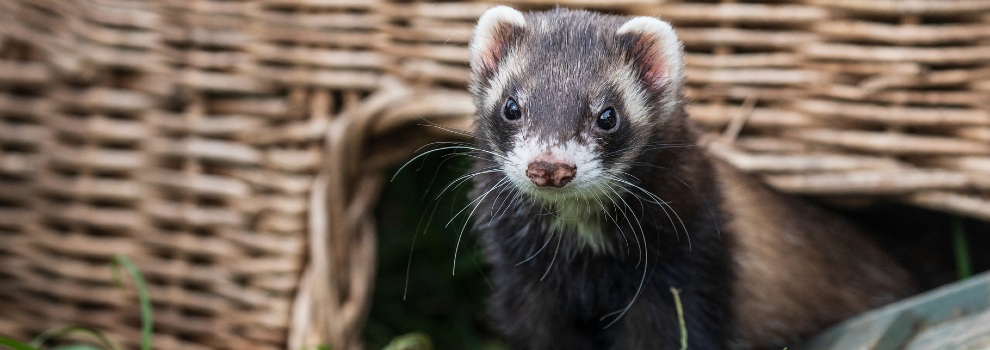- Find a Pet
- Advice and Welfare
- Ways to Give
- Get Involved
- What We Do
- Search
- My RSPCA
- Report a concern
- Gift in Wills
-
Colour modeVivid Calm
- Home
- Advice and welfare
- Pets
- Ferrets
- Environment
Creating a good home for your ferrets
Keeping your ferrets healthy and happy starts by creating a great home for them. Here are our top tips.

Housing
A good home for pet ferrets should be:
- Well ventilated, dry and draught-free.
- With a temperature around 15 to 21°C.
- Include toys and tunnels for them to explore and play with. This stops them from getting bored.
- Clean water and food bowls and toilet areas every day.
- Clean their housing, play and resting areas as needed and at least weekly.
- Hazard-free, no poisonous plants or electrical wires to chew. Ferrets love to explore by mouthing or chewing objects in their environment so keep their home safe.
Space to play
- Ferrets are very agile and lively and need lots of space to explore, play and exercise to stay healthy.
- Ferrets need to be able to forage, play, hide, rest, groom and mark their own territory. Their housing needs to accommodate this range of behaviours.
Sleeping area
- Ferrets sleep or rest for up to 20 hours a day.
- Ferrets are most active at dusk.
- Make sure you include a secure, safe place for them to rest and sleep. You could use an old T-shirt, hammock or sleeping box and provide dust-free bedding.
Toilet area
- Ferrets need regular access to a suitable toilet area.
- A litter tray that's separate from their eating, sleeping and playing areas is a good idea.
- Ferrets can even be toilet trained!
If you go away
- If you're off on holiday or away, make sure you've someone to take care of your ferrets.
- It's usually best for animals to be cared for in their familiar home.
- If you do need to transport them, always ensure they're safe and comfortable while they're on the move. Putting familiar smelling items (such as toys) in the carrier and the new environment can help them feel at ease.
- Provide enough space and ensure the temperature is comfortable wherever you leave them, including in vehicles.



